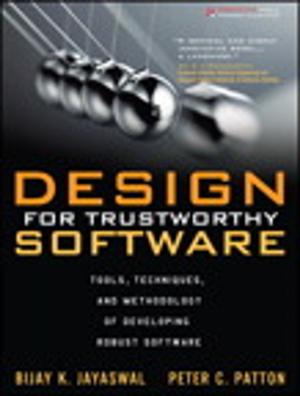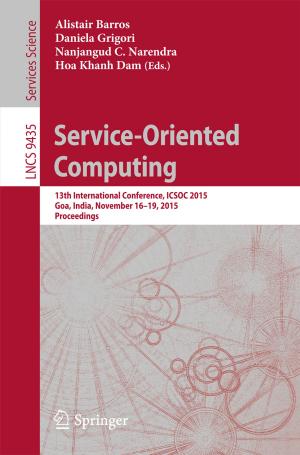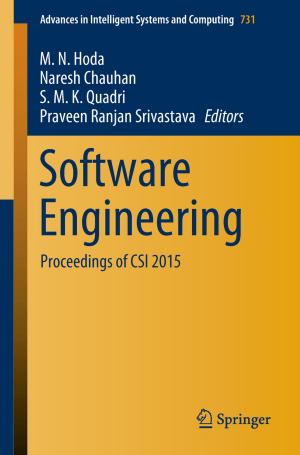Microservices Architecture
Nonfiction, Computers, Application Software, Desktop Publishing, Programming, Software Development| Author: | Ajay Kumar | ISBN: | 1230003076156 |
| Publisher: | Ajay Kumar | Publication: | February 9, 2019 |
| Imprint: | Language: | English |
| Author: | Ajay Kumar |
| ISBN: | 1230003076156 |
| Publisher: | Ajay Kumar |
| Publication: | February 9, 2019 |
| Imprint: | |
| Language: | English |
In this book you will learn how to architect complex software using microservices architecture, so that it's flexible, scalable, and a competitive piece of software. And after completing this book, you will automatically start to think differently about software design and your architectural skills will become even stronger with a core set of design principles that will aid you to architect better software.
Microservices architecture is a better way of implementing a service oriented architecture. After years of varying interpretations of a service oriented architecture, microservices is the conclusive design which provides all the advantages of the service oriented architecture approach. This book introduces microservices, discusses design, lists technology considerations, and highlights how to move forwards with microservices.
This book is split up into four modules. This first module will focus on introducing microservices and on introducing the design principles associated with microservices architecture. The second module will then look at the design approach that can be taken in order to implement the microservices design principles. On completion of the second module, how to implement the microservice will become clear. The third module of the book will focus on the technology that can be used to implement microservices. Many types of technology are suggested because the architectural theory in this book can apply to any platform. The final module of the book covers how you can move forward with microservices, both in a brownfield situation and in a greenfield situation. A brown field situation is where you're going to move an existing system forward with microservices architecture. In a greenfield situation, you're basically developing a new system from scratch using microservices architecture.
In this book you will learn how to architect complex software using microservices architecture, so that it's flexible, scalable, and a competitive piece of software. And after completing this book, you will automatically start to think differently about software design and your architectural skills will become even stronger with a core set of design principles that will aid you to architect better software.
Microservices architecture is a better way of implementing a service oriented architecture. After years of varying interpretations of a service oriented architecture, microservices is the conclusive design which provides all the advantages of the service oriented architecture approach. This book introduces microservices, discusses design, lists technology considerations, and highlights how to move forwards with microservices.
This book is split up into four modules. This first module will focus on introducing microservices and on introducing the design principles associated with microservices architecture. The second module will then look at the design approach that can be taken in order to implement the microservices design principles. On completion of the second module, how to implement the microservice will become clear. The third module of the book will focus on the technology that can be used to implement microservices. Many types of technology are suggested because the architectural theory in this book can apply to any platform. The final module of the book covers how you can move forward with microservices, both in a brownfield situation and in a greenfield situation. A brown field situation is where you're going to move an existing system forward with microservices architecture. In a greenfield situation, you're basically developing a new system from scratch using microservices architecture.















